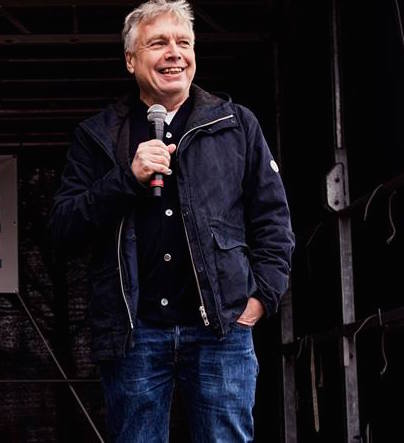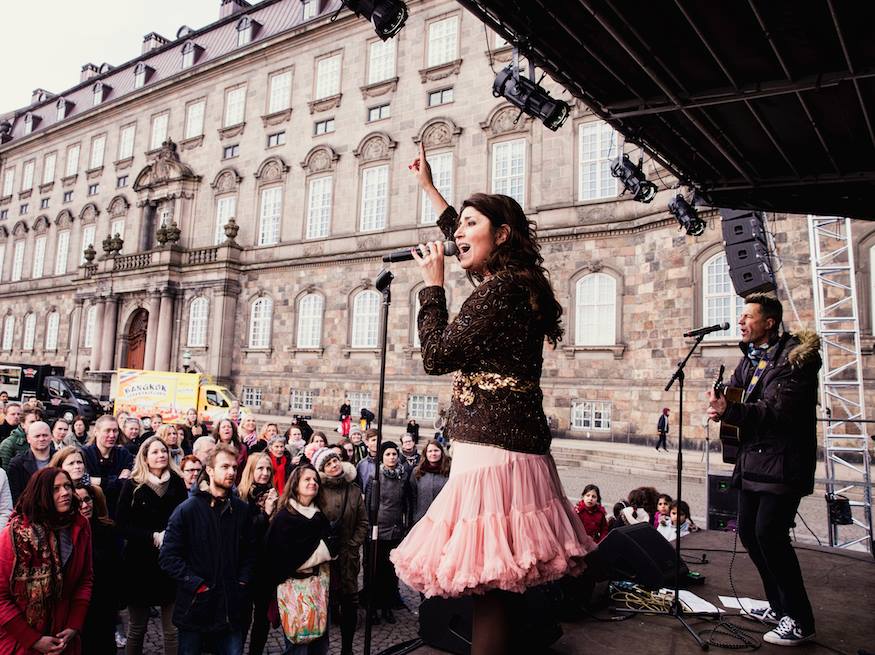Thousands of people of all ages converged at Christiansborg Slotsplads yesterday for Denmark’s first-ever Workshop for Global Peace.
The initiative embraces the premise that passive and reactive events in response to acts of violence, such as demonstrations or torch-light marches, are no longer enough, and that people need to learn how to prevent violence and create a more peaceful world through increased knowledge of topics like empathy, awareness and constructive conflict.
“We must learn how to diffuse our emotions rather than blow up as soon as we are challenged,” said organiser Pernille Lauritsen. “This applies both within our families and in the wider world, and it is a mistake to believe that people automatically know how to do it.”
A fresh start needed
Lauritsen was joined by notable activists like Alternativet leader Uffe Elbæk, one of the project’s founders, renowned family therapist Jesper Juul, and Lisbeth Zornig, the former president of Børnerådet, the National Council for Children.
“Changes are occurring beneath the radar of the media,” said Elbæk. “Conversations around the kitchen table and among us all as individuals are happening and starting to create change.”
Several activist musicians provided entertainment, including singer/songwriter Monique, who offered up a stunning version of the gospel classic ‘Amazing Grace’.
“I sat over Easter and looked at the photos of everyone’s holiday lunches on Facebook and became more and more restless,” said Lauritsen. “It is great that people are enjoying their lives, but when bombs are exploding and the world is bleeding at the same time, the contrast is too great. I knew there were many others that felt the need to do something.”
Change begins at home
Lauritsen enlisted friends and family to organise a peace workshop for thousands in just two weeks.
“Just since November there have been terrorist attacks in Paris, Istanbul and Brussels,” she said. “Several Danish schools were briefly closed due to bomb threats.”
READ MORE: Students warned by police not to come to south Zealand school on Thursday
Lauritsen, who has taught empathy and compassion for 20 years, and her fellow activists see war and terror as the ultimate expression of conflicts that begin in our own homes, workplaces and schoolyards, and they want to start teaching the tools for conflict resolution at a grassroots level.
“We must learn how to create peace first within ourselves, and then communicate it to the world,” said Lauritsen.
A tipping point
She recognises that some may view her efforts as naive.
“Historically, it is always a small group that has created the changes we take for granted today,” she said. “We only need to capture 3.5 percent of the population to create a tipping point.”
Many of the speakers at the workshop called on politicians to use some of the billions spent on war and counter-terrorism efforts to start teaching about peace, empathy and compassion at the most basic level.
“We have military service for war,” she said. “Why don’t we have service for peace?”

















